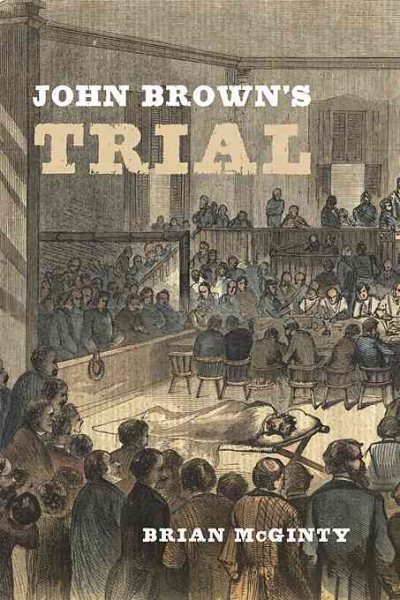 By Brian McGinty
By Brian McGintyMcGinty (Lincoln and the Court) gives us a detailed account of the trial and execution of abolitionist John Brown in 1859 for his raid on Harpers Ferry. Through studying the trial records, period newspapers, and accounts by trial participants, the author raises several important points regarding the fairness of the proceedings. First, the Commonwealth of Virginia tried Brown even though the Harpers Ferry arsenal was the property of the federal government. The prosecutor, Andrew Hunter, had had a relative by marriage who was killed by Brown's men, a factor that should have removed him from the trial. Both of Brown's original defense attorneys had witnessed the raid. After the jury returned the guilty verdict, Brown's appeals were quickly denied, and Governor Henry Wise of Virginia refused to grant clemency. In short, the government of Virginia was determined to be rid of Brown. The results, however, went against Virginia and the South: Brown's eloquent defense of his actions, denunciation of slavery, and execution transformed him into a symbol for the end of slavery.
(Check Catalog)

No comments:
Post a Comment